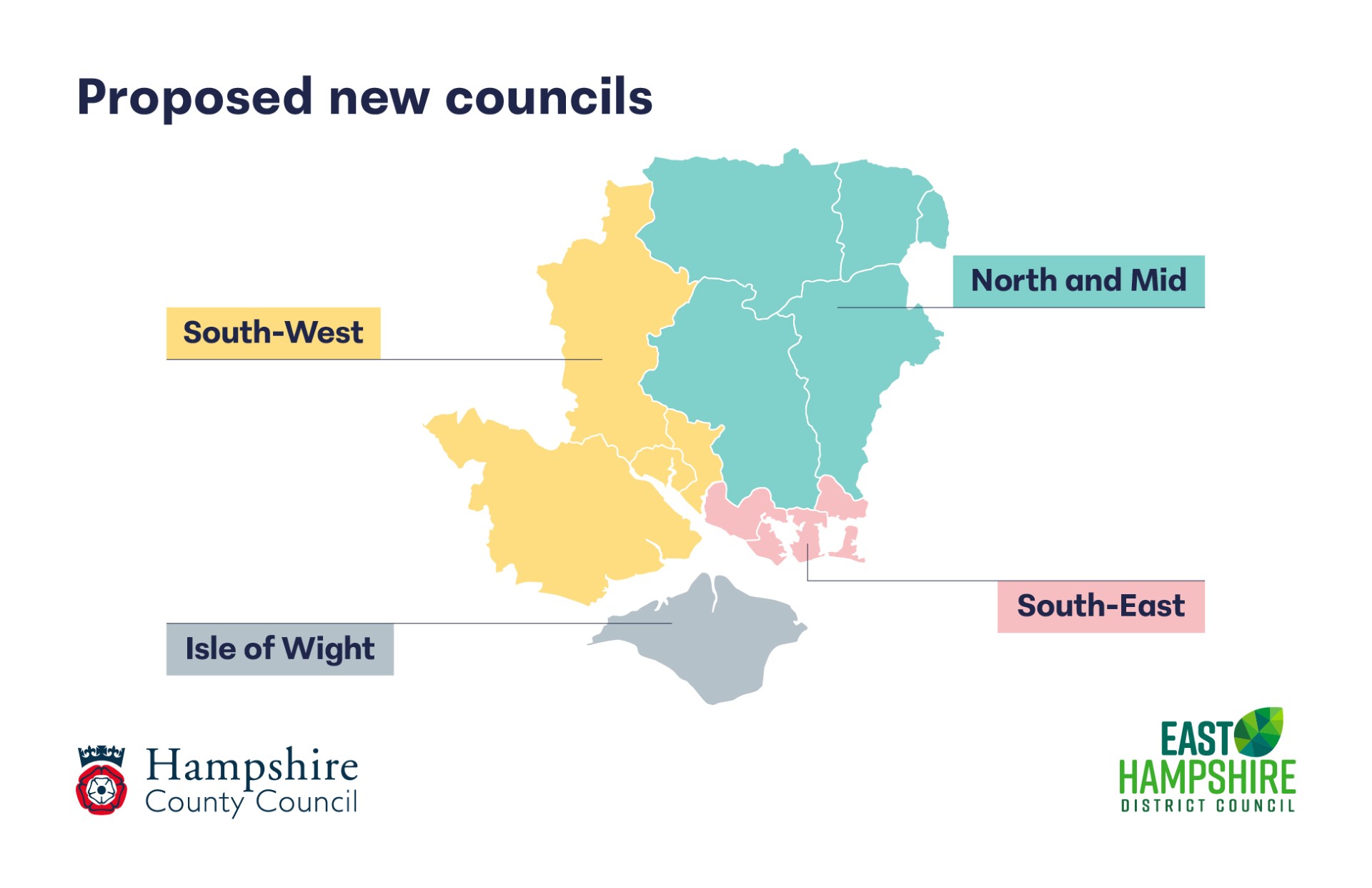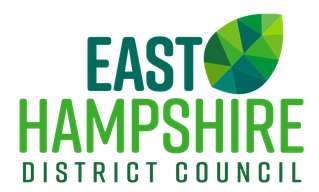
EHDC’s Cabinet today approved a preferred model for local government reorganisation which would replace 15 councils with four unitary councils – marking a pivotal move towards simpler, stronger and more secure council services.
This decision follows a central government requirement for all ‘two-tier’ council areas across the country to transition to single-tier authorities. Which means that district/borough and county councils would no longer exist – and instead unitary councils would deliver all services (everything from social care and education to bin collections and planning).
EHDC worked in partnership with Hampshire County Council to develop proposals for the Hampshire and Solent area which involved a thorough assessment of data using robust methodology. This has included extensive research and financial analysis – as well as feedback from residents, public service partners and local government experts.
Today EHDC approved the preferred model which would replace the existing 15 councils with four new unitary councils (three new councils would be created on the Hampshire and Solent area mainland, and the Isle of Wight would remain a standalone council).
The proposed unitary council areas are:
- North and Mid Hampshire (Basingstoke and Deane, East Hampshire, Hart, Rushmoor, Winchester)
- South-West Hampshire and Solent (Eastleigh, New Forest, Southampton, Test Valley)
- South-East Hampshire and Solent (Fareham, Gosport, Havant, Portsmouth)
- Isle of Wight (remaining as a standalone unitary council)

This proposed unitary model offers the best balance of simplicity, stability and savings (the financial analysis says it would save nearly £50million a year after the initial payback period and would have the lowest setup costs). It builds on the strengths of all existing councils and ensures vital services like social care, education, homelessness and benefits continue without interruption.
Cabinet’s decision follows the proposal being recommended to them by Full Council on 17 July where councillors discussed the detailed report that provides the business case for the preferred model.
Cabinet also agreed to launch an engagement programme which will start on Monday 21 July and will be an opportunity for residents, organisations, groups, businesses and other stakeholders to have their say on the preferred model.
This engagement will run until 17 August and the feedback from this will be used to shape the final proposal for local government reorganisation. This will then be considered by both Full Council and Cabinet in September. If this is approved then it will be submitted to central government – which will then review all submissions and carry out its own public consultation before making a final decision on the future structure of local government in our area.
Cllr Richard Millard, EHDC’s Leader, said today: "We have taken a historic step forward, not just for East Hampshire, but for the whole of Hampshire.
“By backing the four-unitary model, we are laying the foundations for a stronger, more sustainable, and more responsive local government. This is a model that balances ambition with realism, transformation with stability. It will allow us to protect vital services, deliver real savings, and modernise local democracy for the next generation.
“This decision was not made lightly. It followed months of analysis, collaboration and discussion. The business case we endorsed is the most thorough and evidence-led I have seen in my political career. It is not driven by personal ambition or party politics, it is driven by what is right for our residents. The four-unitary option offers the most coherent, resilient and future-proof structure for the challenges we face today and those we know are coming.
“We carefully considered the three and five council options and they carry far greater risks - risks to service continuity, financial stability and to public trust. Our residents cannot afford disruption. They deserve a solution that is bold, yes, but also pragmatic, deliverable and rooted in reality. That is exactly what the four-unitary model provides.
“I want to thank our officers, partners and fellow councillors for their commitment, professionalism, and integrity throughout this process. The collaboration with Hampshire County Council has been constructive, respectful and genuinely productive.
“We recognise that other councils are developing their own proposals, which will be submitted to central government alongside ours. That diversity of ideas is a healthy and necessary part of the process.
“The decision we made today is just the beginning of the next chapter. We now move into a crucial period of engagement. I urge every councillor, every partner, and every resident to get involved and have their say and ensure our proposal is the very best it can be.”
